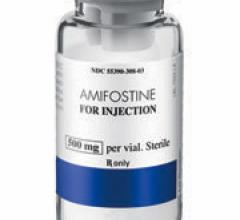June 30, 2011 — Micell Technologies Inc. announced that it has completed its review of the scheduled four-month follow-up on the first 10 patients from the DESSOLVE I first-in-human trial of the MiStent drug-eluting coronary stent system ("MiStent DES"), an ultra-thin drug-eluting stent (DES) distinguished by a rapid-absorbing drug/polymer coating formulation. Based on results observed in the DESSOLVE I trial, Micell has reduced the sample size in its DESSOLVE II CE Mark study from 270 to 171 planned subjects.
June 30, 2011 — The MemorialCare Heart and Vascular Institute (MHVI) at Long Beach Memorial has acquired the C7-XR OCT intravascular imaging system from St. Jude Medical. It is an imaging technology platform that aids physicians in the diagnosis and treatment of cardiovascular disease. Using optical coherence tomography (OCT), the system utilizes near-infrared light to create images that go beyond older coronary imaging technologies - such as fluoroscopy and intravascular ultrasound (IVUS) - offering cardiologists an assessment method with enhanced clarity for their patients with coronary artery disease.
June 30, 2011 — Genzyme, a Sanofi company, and Isis Pharmaceuticals Inc. announced today that two additional analyses from phase 3 studies of mipomersen were presented at the 79th European Atherosclerosis Society (EAS) congress.
Cardiac PET/CT represents a major advancement in cardiovascular diagnostics, offering significant clinical and ...
June 30, 2011 — During the first quarter of 2011, Biosound Esaote completed a name transition to become Esaote North America. The purpose of this transition was to emphasize the relationship with its parent company, the Esaote Group.
June 30, 2011 — Results of a clinical research study at Sharp Memorial Hospital indicate that patients 70 years of age or older have good functional recovery, survival and quality of life at two years when undergoing left ventricular assist device (LVAD) therapy for heart failure. The study was released in the June 21 edition of the Journal of the American College of Cardiology.

Probably the biggest trend occurring in cardiovascular ultrasound systems today is the adoption of 3-D/4-D echo systems, which offer the benefits of better images, more data, better measurement quantification and faster workflow. Other key trends include: software to speed workflow with fewer keystrokes and to enhance quantification; miniaturization; increased use of tissue strain imaging, and expanded use for operating room and cath lab procedures.
SPONSORED CONTENT — Studycast is a comprehensive imaging workflow system that allows healthcare professionals to work ...
June 29, 2011 — Vital Images, a Toshiba Medical Systems company, released Vitrea Enterprise Suite (VES), Version 6.1. Enhancements in Version 6.1 build on the Vitrea Enterprise Suite and improve clinical workflows through advancements such as expanded integration capabilities.
June 29, 2011 — A new study utilizing data from the Intersocietal Commission for the Accreditation of Nuclear Medicine Laboratories (ICANL) suggests that while noncompliance with reporting standards is found in the majority of nuclear cardiology laboratories throughout the U.S., those facilities participating in the ICANL accreditation process demonstrate an increase in compliance over time.
June 29, 2011 – The University of Chicago is allowing Pinnacle Oncology to acquire its technology and intellectual property rights for the development of a compound, amifostine, to prevent genomic instability caused by a variety of sources of ionizing radiation exposure, including common computed tomography (CT) scans.
Providing exceptional cardiovascular care for patients to achieve the best possible outcomes is the number one goal for ...
June 29, 2011 –The U.S. Food and Drug Administration (FDA) has given 510(k) market clearance of the 30-inch MultiSync MD301C4 medical diagnostic display for the displaying and viewing of digital images for diagnosis by trained physicians. The display is made by NEC Display Solutions of America.
June 29, 2011 – The experimental antiplatelet drug ticagrelor prevented significantly more cardiovascular complications than the standard medication clopidogrel when used with low-dose aspirin, according to new research reported in the American Heart Association's Emerging Science Series webinar.
June 29, 2011 – To expand manufacturing operations and commercial infrastructure to support growing demand for the LipiScan IVUS (intravascular ultrasound) Coronary Imaging System, InfraReDx Inc. announced it raised $24.1 million from the sale of equity to existing InfraReDx shareholders.
Cardiac positron emission tomography (PET) is growing in popularity among cardiologists because it provides the ability ...
June 29, 2011 – An industry-first collaboration is bringing together cardiovascular testing company Atherotech Diagnostics Lab and diabetes testing company GlycoMark. The collaboration means the two companies will jointly commercialize the VAP (vertical auto profile) cholesterol test with the GlycoMark diabetes test.
June 29, 2011 – For the first time, human blood vessels grown in a laboratory from donor skin cells have been successfully implanted into patients, according to new research presented in the American Heart Association (AHA)’s Emerging Science Series webinar.
June 29, 2011 — A device that could reduce key health risks facing kidney failure patients connected to dialysis machines has won a $10,000 first prize for Johns Hopkins graduate students in the 2011 American Society of Mechanical Engineers (ASME) Innovation Showcase.


 June 30, 2011
June 30, 2011















